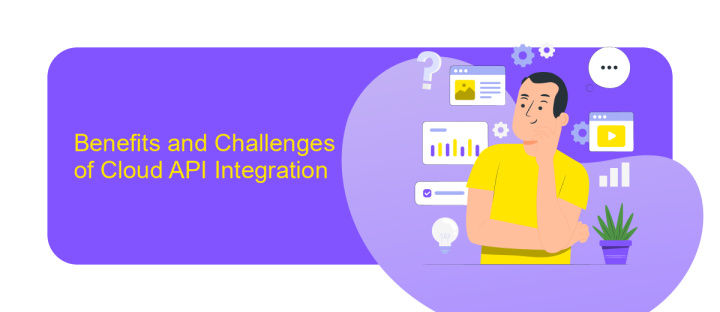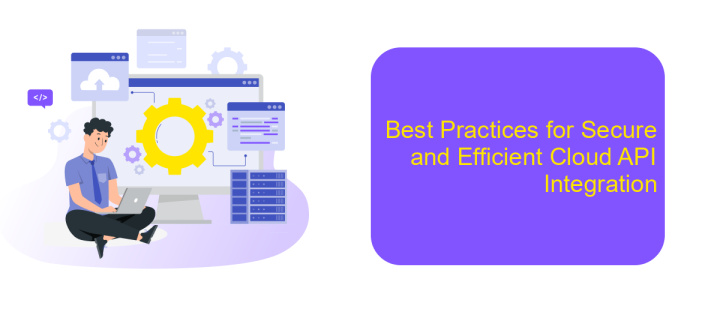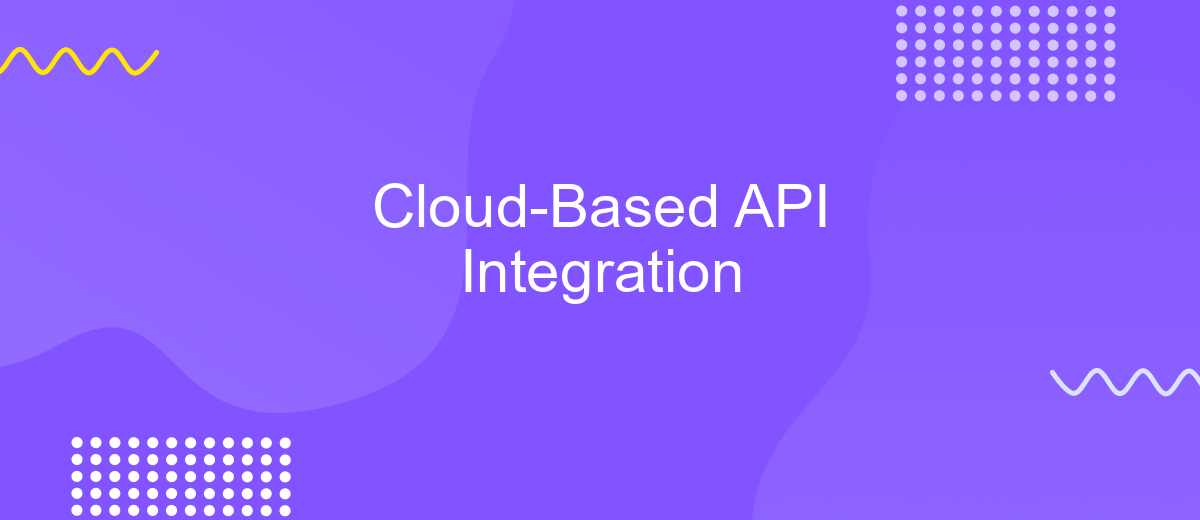Cloud-Based API Integration
In today's rapidly evolving digital landscape, cloud-based API integration has become a cornerstone for businesses seeking agility and scalability. By seamlessly connecting diverse applications and services, cloud-based APIs enable organizations to enhance operational efficiency, foster innovation, and streamline workflows. This article explores the transformative impact of cloud-based API integration, highlighting its benefits, challenges, and best practices for leveraging this technology to drive business success.
Introduction to Cloud-Based API Integration
Cloud-based API integration is a transformative approach that enables businesses to seamlessly connect disparate systems and services over the internet. By leveraging cloud technology, organizations can enhance their operational efficiency, scalability, and flexibility. This integration allows businesses to access and exchange data between various applications and platforms, streamlining workflows and improving collaboration. As the demand for digital transformation grows, cloud-based API integration becomes an essential component for businesses aiming to stay competitive in a rapidly evolving market.
- Enhanced connectivity: Facilitates seamless communication between different software applications.
- Scalability: Easily adapts to growing business needs without significant infrastructure changes.
- Cost-effectiveness: Reduces the need for on-premises hardware and maintenance.
- Improved data access: Enables real-time data sharing and collaboration across platforms.
As organizations increasingly adopt cloud-based solutions, the integration of APIs in the cloud environment becomes crucial for driving innovation and efficiency. This approach not only simplifies the process of connecting various applications but also ensures that businesses can quickly adapt to changing technological landscapes. By embracing cloud-based API integration, companies can unlock new opportunities for growth and innovation, positioning themselves for success in the digital age.
Benefits and Challenges of Cloud API Integration

Cloud-based API integration offers numerous benefits, enhancing flexibility and scalability for businesses. By connecting disparate systems and applications, it streamlines operations, reduces manual tasks, and promotes real-time data exchange. This integration fosters innovation, enabling companies to quickly adapt to market changes and customer demands. Additionally, it can lead to cost savings by minimizing the need for extensive IT infrastructure and maintenance. Services like ApiX-Drive facilitate these integrations by providing user-friendly tools that simplify the process, ensuring seamless connectivity between various platforms without requiring extensive coding knowledge.
Despite its advantages, cloud API integration also presents several challenges. Security concerns are paramount, as data breaches can occur if proper safeguards are not implemented. Ensuring data privacy and compliance with regulations is crucial. Additionally, managing multiple APIs can become complex, requiring ongoing maintenance and monitoring. Compatibility issues may arise, necessitating careful planning and testing. Organizations must also be prepared for potential downtime or disruptions during the integration process. Balancing these challenges with the benefits requires strategic planning and the right tools, such as ApiX-Drive, to ensure successful implementation and operation.
Key Considerations for Cloud API Integration

When integrating cloud-based APIs, it's essential to consider several critical factors to ensure seamless connectivity and optimal performance. These considerations help in minimizing potential issues and maximizing the benefits of cloud services.
- Security: Ensure that the API provides robust security features, including encryption, authentication, and authorization, to protect sensitive data.
- Scalability: Evaluate whether the API can handle increasing loads and scale efficiently as your business grows.
- Compliance: Verify that the API complies with relevant industry standards and regulations, such as GDPR or HIPAA, to avoid legal complications.
- Documentation: Comprehensive and clear documentation is crucial for understanding API functionalities and troubleshooting issues.
- Cost: Assess the pricing model of the API to ensure it aligns with your budget and offers a good return on investment.
By carefully considering these factors, businesses can effectively integrate cloud-based APIs, enhancing their operational capabilities and driving innovation. Proper planning and evaluation of these key aspects will lead to successful API integration, aligning with strategic goals and technological advancements.
Best Practices for Secure and Efficient Cloud API Integration

Integrating cloud-based APIs securely and efficiently is crucial for modern businesses. A well-structured approach ensures data integrity and system reliability while minimizing vulnerabilities. To achieve this, it's essential to focus on both security measures and performance optimization from the outset.
Firstly, ensure that all API communications are encrypted using protocols such as HTTPS. This helps protect sensitive data from interception during transmission. Additionally, implementing strong authentication mechanisms, like OAuth, can further safeguard access to your APIs.
- Utilize rate limiting to prevent abuse and ensure fair usage among clients.
- Monitor API traffic and set up alerts for unusual activities or potential threats.
- Implement input validation to prevent injection attacks and data corruption.
- Regularly update and patch your APIs to protect against known vulnerabilities.
Finally, consider the scalability of your API integration. As your user base grows, your API should handle increased load without compromising performance. By following these best practices, you can create a robust and secure cloud API integration that meets the needs of your business while protecting your data and systems.
Future Trends in Cloud API Integration
As cloud-based API integration continues to evolve, several future trends are emerging that promise to reshape the landscape. One significant trend is the increasing use of artificial intelligence and machine learning to automate and optimize API management processes. These technologies can enhance the efficiency and reliability of API integrations by predicting potential issues and suggesting improvements, thereby reducing manual intervention and error rates. Additionally, the demand for real-time data processing and analytics is driving the need for more sophisticated API solutions that can handle large volumes of data seamlessly.
Another trend is the growing emphasis on low-code and no-code platforms, such as ApiX-Drive, which empower businesses to set up and manage API integrations without extensive coding knowledge. These platforms enable faster deployment and reduce the dependency on specialized IT teams, making API integration more accessible to a broader range of users. Furthermore, as more organizations adopt multi-cloud strategies, there is an increasing focus on developing APIs that can operate across different cloud environments, ensuring interoperability and flexibility in an ever-expanding digital ecosystem.
FAQ
What is cloud-based API integration?
How does cloud-based API integration benefit businesses?
What are the common challenges in cloud-based API integration?
How can businesses implement cloud-based API integration effectively?
What should be considered when choosing a cloud-based API integration platform?
Strive to take your business to the next level, achieve your goals faster and more efficiently? Apix-Drive is your reliable assistant for these tasks. An online service and application connector will help you automate key business processes and get rid of the routine. You and your employees will free up time for important core tasks. Try Apix-Drive features for free to see the effectiveness of the online connector for yourself.

